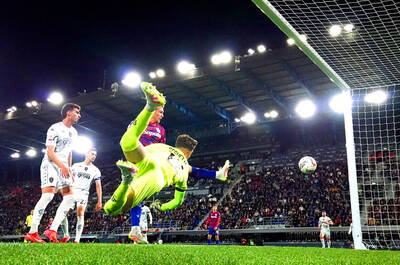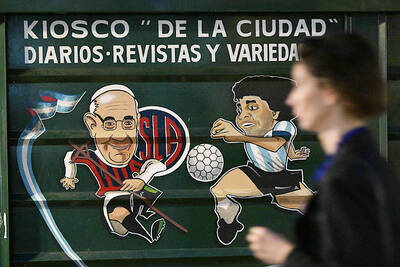After the University of Michigan lost to Ohio State University in the semi-finals of the women’s NCAA Big Ten Tournament, Michigan Wolverines coach Kim Barnes Arico and her staff hit the road, where they intended to take advantage of a full week off before the NCAA Tournament by visiting as many potential recruits as possible.
“That was our window. You get to go to someone’s home. That helps you build relationships. Helps build so many things,” Barnes Arico said. “We had all these things scheduled until we went to see high-school championships.”
Of course, the championships were canceled, as was the NCAA Tournament.
This included the crucial recruiting period for college coaches who were putting the finishing touches on this season’s team and laying the groundwork for next year.
The NCAA has barred in-person recruiting until at least April 15.
The Collegiate Commissioner’s Association, which administers the letters of intent used by Division I and II athletes, followed with a suspension on all letters through the same date.
As a result, no college coaches have been packed into suffocating high school gyms; no coaches have milled about airport terminals, waiting for the next flight to some out-of-the-way place; there have been no chances to shake hands with mom and dad, and make a pitch where the coach places the fate of their career in the parents’ hands.
“March was watching high-school games and going into homes. April and May had recruiting weekends. Home visits are all gone,” Barnes Arico said. “When the calendar comes back, June isn’t a home-visit month. What will happen?”
It is a similar story for college football, baseball and a myriad of other sports.
There is a pervasive sense of uncertainty that has coaches on edge as they try to navigate recruiting amid a pandemic.
“I think recruiting is more of an inexact science right now than it ever has been,” Kansas coach Bill Self said. “Just knowing your own numbers and how to attack that — how can you commit to something now that you don’t know what will exist, and the rules behind that existence? I think there are a lot of programs up in the air.”

Bologna on Thursday advanced past Empoli to reach their first Coppa Italia final in more than half a century. Thijs Dallinga’s 87th-minute header earned Bologna a 2-1 win and his side advanced 5-1 on aggregate. Giovanni Fabbian opened the scoring for Bologna with a header seven minutes in. Then Viktor Kovalenko equalized for Empoli in the 30th minute by turning in a rebound to finish off a counterattack. Bologna won the first leg 3-0. In the May 14 final in Rome, Bologna are to face AC Milan, who eliminated city rivals Inter 4-1 on aggregate following a 3-0 win on Wednesday. Bologna last reached the

If the Wild finally break through and win their first playoff series in a decade, Minnesota’s top line likely will be the reason. They were all over the Golden Knights through the first two games of their NHL Western Conference quarter-finals series, which was 1-1 going back to Minnesota for Game 3 today. The Wild tied the series with a 5-2 win on Tuesday. Matt Boldy had three goals and an assist in the first two games, while Kirill Kaprizov produced two goals and three assists. Joel Eriksson Ek, who centers the line, has yet to get on the scoresheet. “I think the biggest

From a commemorative jersey to a stadium in his name, Argentine soccer organizers are planning a slew of tributes to their late “Captain” Pope Francis, eulogized as the ultimate team player. Tributes to the Argentine pontiff, a lifelong lover of the game, who died on Monday at the age of 88, have been peppered with soccer metaphors in his homeland. “Francisco. What a player,” the Argentine Football Federation (AFA) said, describing the first pope from Latin America and the southern hemisphere as a generational talent who “never hogged the ball” and who showed the world “the importance of having an Argentine captain,

Noelvi Marte on Sunday had seven RBIs and hit his first career grand slam with a drive off infielder Jorge Mateo, while Austin Wynn had a career-high six RBIs as the Cincinnati Reds scored their most runs in 26 years in a 24-2 rout of the Baltimore Orioles. Marte finished with five hits, including his eighth-inning homer off Mateo. Wynn hit a three-run homer in the ninth off catcher Gary Sanchez. Cincinnati scored its most runs since a 24-12 win against the Colorado Rockies on May 19, 1999, and finished with 25 hits. Baltimore allowed its most runs since a 30-3 loss to